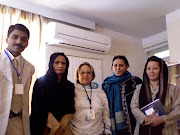The Biharis or ‘stranded Pakistanis’ as they are sometimes called, were an Urdu-speaking Muslim minority living in the majority Hindu region of Bihar in pre-independence India. With the breakup of India in 1947, a large group fled to East Pakistan and became a linguistic minority amongst the majority Bengali speaking indigenous peoples. They were full citizens of Pakistan until 1971, when the indigenous Bengali majority in East Pakistan, with military assistance from India, orchestrated a successful secession from the Pakistani state, creating an independent Bangladesh.
For a large part, the genesis of Bihari statelessness lies in the citizenship policies of pre-1971 Pakistan Government. When Pakistan was created out of India in 1947, the ethnic Punjabis in coalition with the military forces gained power as the new ruling elite. As in Sri Lanka, the central state administration took on an all-powerful role in the organization of society, strictly curtailing provincial and local authorities’ access to power and resources. Non-Punjabis were poorly represented within the higher echelons of the bureaucracy and in the central state apparatus. Besides, Urdu was declared the official language of the state. In particular, the Bengali speaking peoples in East Pakistan were denied full representation in the political and bureaucratic arms of the state and given an inequitable share of state services and resources.
Because they were Urdu speakers, the Biharis occupied a privileged position in East Pakistan and had an advantage over Bengalis in managerial positions that required knowledge of Pakistan’s official language. As such, they stood politically, socially and culturally apart from the Bengali speaking population and maintained closer ties to the political elite in West Pakistan. The situation remained stable until the late 1960s when Bengali leaders began to react against the Punjabi dominated state that did not grant East Pakistan its due share in the power structure and membership goods of the nation. By 1970, the Bengali-led Awami League party won a majority in the Provincial Assembly and emerged the single largest party in the national parliamentary elections. It demanded maximum provincial autonomy and devolution of power from the central government.
The central government and the military responded with massive repression directed towards the Bengali masses and politicians, which, along with Indian military intervention in the conflict, paved the way for the emergence of the Bangladeshi state. The Bangladeshi independence movement had a direct impact on the Bihari population, whose leaders had sided with and actively participated in the government offensive to crush the Bengali separatists. Many Biharis enrolled in the government militia units that perpetuated the atrocities that characterized the civil war. In the immediate aftermath, Bangladeshis took action to punish the Biharis for their collaboration with the Pakistani forces. Biharis were forced out of their homes, imprisoned, had their property confiscated and over one thousand were massacred in retaliation to the Pakistani slaughter of Bengali civilians. But the Indian Army present in Bangladesh shielded them from the most severe retaliations and moved them, for their safety, into some ‘refugee’ camps set up with the help of the Red Cross around Dhaka.
What happened next is a somewhat vexed issue. Sheikh Mujibur initially pledged that Biharis were equal under Bangladeshi law, but this pledge was ignored by the new government which declared that the Biharis were not Bangladeshis but Pakistanis. With residual Bengali animosity directed towards them, their homes and livelihoods destroyed, their compatriots murdered, most Biharis choose to remain in the ‘temporary’ camps and await ‘repatriation’ to a Pakistan where they had never set foot in but now claimed citizenship of.
Under the tripartite agreement between India, Pakistan and Bangladesh in 1974, Pakistan agreed that all Biharis employed in Pakistan Government service before Bangladeshi independence could be repatriated to Pakistan. Some 170,000 Biharis were resettled to Pakistan under this provision, while some 300,000 remained in the camps awaiting their eventual resettlement. Some 30 years later, over 230, 000 still remain in the camps, effectively stateless, with neither Pakistan nor Bangladesh recognizing them as their citizens. Since then, all official resettlement of the Biharis has been put on hold.
International aid workers have claimed that the Bihari leadership has even resisted efforts to improve living conditions in the camps in order to dramatize their appeal for repatriation. However, many Biharis, especially those born in the independent Bangladesh and have learnt to speak Bengali, have begun to advocate local integration and to press for Bangladeshi citizenship. Meanwhile, the Biharis continue to remain in limbo, having ties to both Pakistan and Bangladesh, yet without the full protection of either.












No comments:
Post a Comment